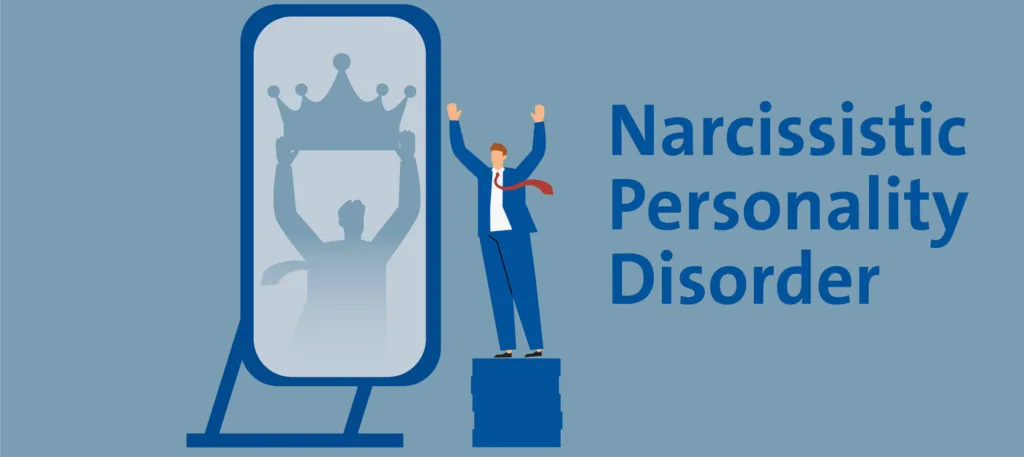Interpersonally exploitative behavior is a prominent characteristic of individuals with narcissistic personality disorder. Narcissists have a tendency to exploit others without any regard for their feelings, emotions, or interests. This exploitative behavior often occurs when the other person is in a subservient position, making it difficult or impossible to resist the narcissist.
One of the most common characteristics of narcissists is their inflated ego. They believe that they are superior to others and feel entitled to have all their needs met, regardless of how harmful they may be to others. This sense of entitlement often leads to a lack of empathy, with narcissists showing little concern for the emotions and feelings of thse around them.
Narcissists also have a strong need for attention and validation from others. They crave praise and admiration and will go to great lengths to achieve it. This need for attention often leads to exploitative behavior, with narcissists using others to boost their own ego and sense of self-importance.
Repressed insecurities are another characteristic of narcissistic behavior. Narcissists often have deep-rooted insecurities that they try to hide by projecting a false sense of confidence and superiority. This can manifest in exploitative behavior, with narcissists using others to validate their own sense of self-worth.
One of the most alarming aspects of interpersonally exploitative behavior is the lack of boundaries displayed by narcissists. They do not respect the personal space of others and see themselves as entitled to access and control over other people. This lack of boundaries can lead to individuals feeling used and manipulated by narcissists.
Exploitation by narcissists can take many different forms. It can range from emotional manipulation to financial exploitation. Narcissists may use emotional manipulation to control and dominate others, while financial exploitation can involve taking advantage of someone’s financial resources for personal gain.
Interpersonally exploitative behavior is a common characteristic of individuals with narcissistic personality disorder. Narcissists exploit others without regard for their feelings or interests and often have a strong sense of entitlement and self-importance. Their lack of empathy, need for attention, repressed insecurities, and lack of boundaries can lead to individuals feeling used and manipulated. It is important to recognize these behaviors and protect oneself from being exploited by narcissists.
Types of Narcissism
Narcissism is a personality trait that can manifest in various ways. Researchers and experts have identified different types of narcissism, each with its own characteristics. In general, there are four types of narcissism: grandiose, vulnerable, malignant, and communal.
1. Grandiose Narcissism: This type of narcissism is characterized by an excessive sense of self-importance, a need for admiration, and a lack of empathy for others. People with grandiose narcissism oftn display a sense of entitlement and may exploit others to achieve their goals.
2. Vulnerable Narcissism: Vulnerable narcissism is marked by feelings of insecurity and low self-esteem, often masked by a facade of superiority. People with vulnerable narcissism tend to be hypersensitive to criticism and may react with anger or defensiveness.
3. Malignant Narcissism: Malignant narcissism is a particularly toxic form of narcissism that involves a combination of grandiosity, aggression, and sadism. People with malignant narcissism may engage in manipulative or abusive behavior towards others, and may lack empathy or remorse.
4. Communal Narcissism: Communal narcissism is a subtype of narcissism that is characterized by a focus on selflessness and a desire to be seen as a “good” person. People with communal narcissism may engage in charitable or altruistic behavior, but may also seek recognition and validation for their actions.
It is important to note that these types of narcissism are not mutually exclusive, and individuals may exhibit traits from more than one subtype. Additionally, while some level of self-esteem and self-focus is healthy, excessive narcissism can be harmful to both the individual and those around them.

Exploitation of Others by Narcissists
Narcissists are individuals who exploit others without regard to the rules or the feelings of others. They believe that they deserve to have all their needs met, regardless of how harmful their actions may be to others. Narcissists often lack boundaries, and they do not respect the personal space of others. They see themselves as part of others and have no qualms about invading their space or manipulating them for their own benefit.
One way that narcissists exploit others is by using charm and flattery to gain their trust and admiration. They may use this tactic to gain access to resources or to manipulate others into doing what they want. Narcissists are also kown to engage in gaslighting, which involves manipulating others into questioning their own reality and memory. This tactic is used to gain control over others and to make them more susceptible to manipulation.
Another way that narcissists exploit others is by using them as sources of narcissistic supply. Narcissistic supply refers to the attention, validation, and admiration that a narcissist craves. Narcissists may use others to meet their need for supply, often by making unrealistic demands, belittling them, or even punishing them if they do not comply with their requests.
Narcissists may also exploit others by using them as scapegoats. They may blame others for their own mistakes, failures, or shortcomings, and use them as a means of deflecting criticism or avoiding responsibility. This tactic can be particularly damaging, as it can lead to feelings of guilt, shame, and self-doubt in the person being scapegoated.
Narcissists exploit others in a variety of ways, including using charm and flattery, gaslighting, seeking narcissistic supply, and scapegoating. It is important to recognize these tactics and to establish healthy boundaries to protect oneself from the harmful effects of narcissistic behavior.
The Five Main Habits of a Narcissist
Narcissists are individuals who possess a personality disorder characterized by an inflated sense of self-importance, a lack of empathy, and a constant need for attention and admiration. Here are the five main habits of a narcissist:
1. Inflated ego: Narcissists have an exaggerated sense of self-importance and believe that they are superior to others. They often prioritize their needs and desires over those of others and have a hard time accepting criticism or admitting their faults.
2. Lack of empathy: Narcissists have litle regard for the feelings or needs of others. They tend to be self-absorbed and only interested in others when it serves their own interests.
3. Need for attention: Narcissists crave attention and admiration from others. They often seek out opportunities to be the center of attention and may become angry or upset if they feel ignored or overlooked.
4. Repressed insecurities: Despite their outward confidence, narcissists often have deep-seated insecurities and fear being exposed as less than perfect. They may go to great lengths to maintain their image and avoid criticism.
5. Few boundaries: Narcissists often have poor boundaries and may take advantage of others for their own gain. They may manipulate or exploit others to get what they want and may have difficulty respecting the boundaries of others.
These are the main habits that a narcissist typically exhibits. It’s important to note that while these behaviors can be challenging to deal with, individuals with narcissistic tendencies can still seek help and work to improve their relationships with others.
The Exploitativeness of Narcissism
Exploitativeness narcissism is a personality trait characterized by the narcissist’s tendency to exploit others without any regard for their emotions or interests. This type of narcissism manifests when the other person is in a subservient position, making it difficult or awkward to resist the narcissist’s demands.
Exploitation can take many forms, such as using people for personal gain, taking advantage of their vulnerabilities, and manipulating them for the narcissist’s benefit. This behavior is ofen seen as predatory and can cause significant harm to the people being exploited.
Narcissistic individuals with exploitative tendencies often lack empathy and are focused solely on their own needs and desires. They may view others as mere tools to be used and discarded when they are no longer useful.
Exploitativeness narcissism is a personality trait characterized by the narcissist’s tendency to exploit others without any regard for their emotions or interests. This behavior can be harmful to the people being exploited and is often seen as predatory.

Conclusion
Interpersonally exploitative behavior is a common trait among individuals with narcissistic personalities. These individuals have a deep-seated belief that they are entitled to have all their needs met, regardless of the impact on others. They lack empathy and do not respect other people’s boundaries, often exploiting them for their own benefit. This behavior can be overt, covert, antagonistic, communal, or malignant, but it is always harmful to those around them. It is important to recognize the signs of narcissistic behavior and set boundaries to protect oneself from being exploited. By understanding the nature of interpersonally exploitative behavior, we can btter navigate our relationships and create healthier interactions with those around us.
